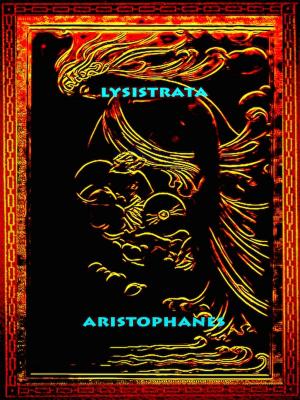| Author: | John Henry Newman | ISBN: | 1230001870275 |
| Publisher: | Editions Artisan Devereaux LLC | Publication: | September 10, 2017 |
| Imprint: | Language: | English |
| Author: | John Henry Newman |
| ISBN: | 1230001870275 |
| Publisher: | Editions Artisan Devereaux LLC |
| Publication: | September 10, 2017 |
| Imprint: | |
| Language: | English |
"False ideas may be refuted by argument, but by true ideas alone are they expelled. I will vanquish," Newman promised, "not my accuser, but my judges..."
Of all the spiritual odysseys that dominate the literature of nineteenth-century England, Newman's Apologia Pro Vita Sua is universally acknowledged as one of the finest as it explores the depths and nature of Christianity with flowing prose and a conversational style that has ensured its status as a classic.
In recounting his tortured spiritual journey from evangelical Calvinism to Roman Catholicism, Newman produced an account of a personal crisis of faith comparable to St Augustine's Confessions.
Cardinal John Henry Newman stunned the Anglican community in 1843, when he left his position as vicar of St. Mary's, Oxford, to join the Roman Catholic Church.
Perhaps no one took greater offense than Protestant clergyman Charles Kingsley, whose scathing attacks against Newman's faith and honor inspired this brilliant response.
The Apologia not only established the stylistic contours for much modern autobiography, it also carefully depicted Newman as a truly pious man whose thankless quest for truth inevitably led him into the embrace of the Holy and Apostolic Roman Catholic Church.
JOHN HENRY NEWMAN (1801–1890) was an Anglican priest, poet and theologian and later a Catholic cardinal, who was an important figure in the religious history of England in the 19th century. In 1845 Newman, officially left the Church of England and his teaching post at Oxford University and was received into the Catholic Church. In 1879, he was installed as a cardinal by Pope Leo XIII. Newman was also a literary figure of note: his major writings including his autobiography Apologia Pro Vita Sua, the Grammar of Assent and the poem The Dream of Gerontius.
“No autobiography in the English language has been more read; to the nineteenth century it bears a relation not less characteristic than Boswell’s ‘Johnson’ to the eighteenth.”
-Rev. Wm. Barry, D.D.
"False ideas may be refuted by argument, but by true ideas alone are they expelled. I will vanquish," Newman promised, "not my accuser, but my judges..."
Of all the spiritual odysseys that dominate the literature of nineteenth-century England, Newman's Apologia Pro Vita Sua is universally acknowledged as one of the finest as it explores the depths and nature of Christianity with flowing prose and a conversational style that has ensured its status as a classic.
In recounting his tortured spiritual journey from evangelical Calvinism to Roman Catholicism, Newman produced an account of a personal crisis of faith comparable to St Augustine's Confessions.
Cardinal John Henry Newman stunned the Anglican community in 1843, when he left his position as vicar of St. Mary's, Oxford, to join the Roman Catholic Church.
Perhaps no one took greater offense than Protestant clergyman Charles Kingsley, whose scathing attacks against Newman's faith and honor inspired this brilliant response.
The Apologia not only established the stylistic contours for much modern autobiography, it also carefully depicted Newman as a truly pious man whose thankless quest for truth inevitably led him into the embrace of the Holy and Apostolic Roman Catholic Church.
JOHN HENRY NEWMAN (1801–1890) was an Anglican priest, poet and theologian and later a Catholic cardinal, who was an important figure in the religious history of England in the 19th century. In 1845 Newman, officially left the Church of England and his teaching post at Oxford University and was received into the Catholic Church. In 1879, he was installed as a cardinal by Pope Leo XIII. Newman was also a literary figure of note: his major writings including his autobiography Apologia Pro Vita Sua, the Grammar of Assent and the poem The Dream of Gerontius.
“No autobiography in the English language has been more read; to the nineteenth century it bears a relation not less characteristic than Boswell’s ‘Johnson’ to the eighteenth.”
-Rev. Wm. Barry, D.D.















